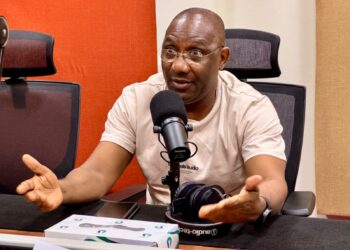Over 300 Metro Mass Transit buses were sold for scrap under the NPP government, with some going for as little as GHC 5,000. The move has sparked calls for an audit into possible asset undervaluation and state losses.
Fresh controversy has emerged over the management of public assets following revelations that more than 300 Metro Mass Transit (MMT) buses were scrapped under the New Patriotic Party (NPP) administration, raising questions about transparency and value for money.
Deputy Managing Director of Metro Mass Transit, Haroun Apaw Wiredu, disclosed that the buses—some reportedly sold for as little as GHC 5,000 each—were auctioned in the years leading up to the 2024 general elections.
Speaking in an interview on Adom TV’s morning show, Apaw Wiredu said the government generated about GHC 30 million from scrapping 313 buses, a move he described as financially questionable given the scale of the company’s original fleet.
“Our records show that between 2017 and 2018, nearly 300 buses out of a total of 1,000 were scrapped after the NPP took office,” Apaw Wiredu revealed. “It will interest you to know that on record, Metro Mass Transit sold a bus for as low as GHC 5,000.”
The disposal of the buses has reignited debate over how state transport assets are managed, with critics arguing that undervaluation and poor oversight may have led to significant losses for the state.
Related Posts
In 2018, Ahmed Arthur, then Board Chairman of Metro Mass Transit Company Limited, defended the decision, saying the auction was based on a re-evaluation by the State Transport Company (STC). He noted that many of the buses had been cannibalised—stripped of key components such as engines and seats—making them unfit for road use and thus classified as scrap metal.
Mr. Arthur further explained that a 2016 valuation report could not be used for the auction because a new board was not in place until mid-2017, by which time the six-month validity of the original assessment had expired.
However, in a separate interview with the Daily Graphic, Arthur denied any interference in the valuation or auction process, insisting the disposal followed due process.
The revelations have fueled renewed calls from civil society and transport unions for a forensic audit into the scrapping of public buses, citing the need for greater transparency and accountability in the management of state-owned enterprises.










Discussion about this post